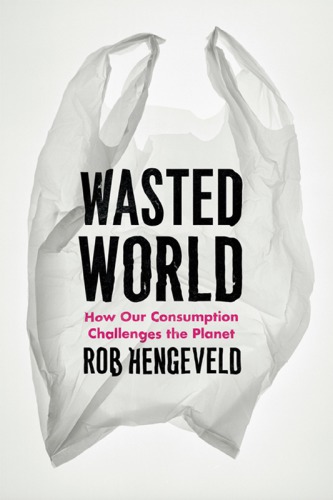
Wasted World
How Our Consumption Challenges the Planet
کتاب های مرتبط
- اطلاعات
- نقد و بررسی
- دیدگاه کاربران
نقد و بررسی

February 13, 2012
In this detailed study, biogeographer Hengeveld (affiliated with the Centre for Ecosystem Studies of Alterra, Wageningen, the Netherlands) tackles the dilemma of reconciling the way we live with the future effect our habits will have on the planet. Tracing our origins from the first reproducing cells to today’s massive global economy, Hengeveld describes how all life depends on energy to thrive. We succeed by parlaying “growth out of growth out of growth of necessity, ad infinitum.” But unless we figure out how to keep all matter in circulation, our planet will be exhausted of resources and become overcrowded with inert waste. By reducing production—both in the sense of reproduction and consumption—we may be able to survive the inevitable shortages of the coming years. Hengeveld forcefully (but apologetically) insists that global population control is a necessary first step in reorienting our priorities, along with radically changing our behavior to restrict consumption of precious energy resources. Over and over, the book asks what it will take for us to change our ways. While points are stirring and effective, the book ultimately rests on tiresome generalities and misses a crucial opportunity to drive its message home—a sad irony for a book that purports to examine waste, in all its varied forms.

March 15, 2012
Scientist Hengeveld (Centre for Ecosystem Studies of Alterra, Wageningen, Netherlands) tackles the multiplicity of issues surrounding the environmental health of our planet. He contends that the exhaustion of our resources coupled with the concurrent rate of waste generated have combined to place humanity on an unsustainable path. Hengeveld then gives an historic overview of how humanity has arrived at this current state. He begins by explaining the chemical processes that underpin all of life and showing how the agricultural and industrial revolutions that have advanced society have also ultimately led to an overdependence on fossil fuels, the overtaxing of our soils, unrecyclable amounts of waste, loss of freshwater, deforestation, loss of biodiversity, and climate change. He contends that while recycling efforts and concerted efforts to conserve resources will make a small difference, we must ultimately focus on limiting human population. VERDICT In a similar vein as Bill McKibben's Eaarth: Making a Life on a Tough New Planet, this reads in part like a textbook and can be a bit redundant at times, but it nicely summarizes our environmental past, present, and future.--Diana Hartle, Univ. of Georgia Science Lib., Athens
Copyright 2012 Library Journal, LLC Used with permission.

























دیدگاه کاربران